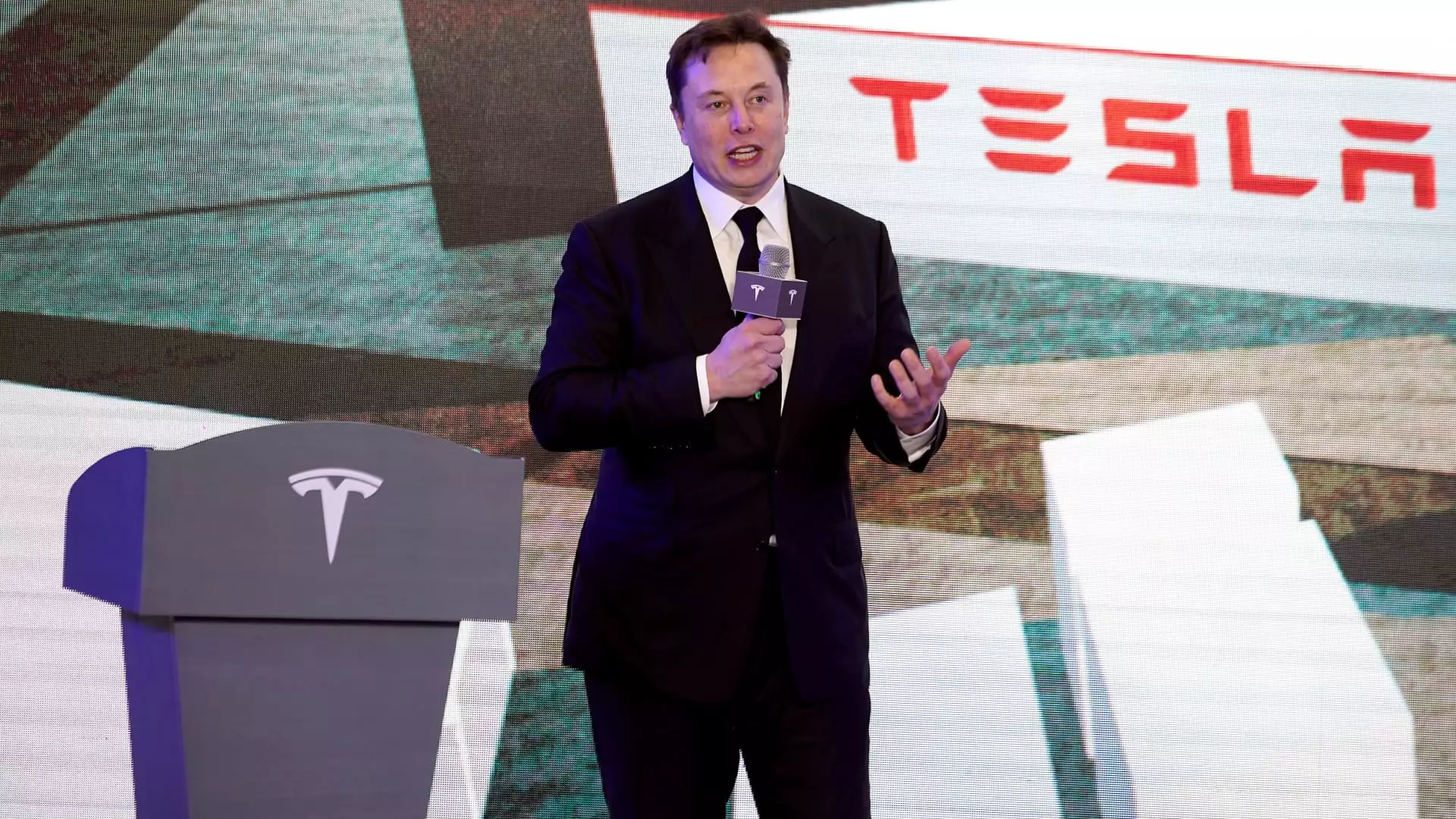In a startling move, Tesla has updated its corporate bylaws to significantly bolster the protections for its board and executives, limiting the ability of shareholders to hold them accountable for breaches of fiduciary duty. As outlined in the recent filing, this change mandates that any shareholder or group of shareholders wishing to initiate a lawsuit must collectively own at least 3% of the company’s outstanding shares. For a behemoth like Tesla, whose market capitalization stands at a staggering $1 trillion, this means that shareholders must hold more than $30 billion worth of stock just to seek redress in court. This new bylaw is strikingly anti-democratic, prioritizing corporate governance over the rights of individual investors.
Such a dramatic increase in the ownership threshold underlines a disturbing trend: the gradual erosion of shareholder power in favor of executive privilege. The legal basis for this maneuver comes from Texas state law, a circumstance that Tesla appears to be exploiting for strategic advantage. While a company like Tesla may thrive with progressive policies designed to foster innovation and growth, this latest bylaw symbolizes a regression into autocratic governance that stifles accountability. In doing so, Tesla sends a clear message that it aligns itself more with its executives than with the people who have invested substantial wealth in the company.
Historical Context: A Shift from Delaware to Texas
It’s crucial to understand the backdrop of this decision. Previously incorporated in Delaware, Tesla faced legal consequences following a lawsuit that scrutinized Elon Musk’s massive compensation package in 2018. A shareholder with just nine shares managed to bring forth a lawsuit that led to a court ruling repressing Musk’s pay. Contrary to what we might view as sound governance—where an executive’s pay is judiciously negotiated and scrutinized—the Delaware court revealed a shocking truth: the board seemed to be acting more as a rubber stamp than a regulatory body. They were, as the judge noted, planning alongside Musk rather than standing apart to represent shareholders’ interests.
The now-famous Tornetta lawsuit underscored the vulnerability of corporate boards to shareholder oversight. However, the move to Texas, where Tesla has restructured its governance framework, marks a pivot to a more pro-management climate. This transition is not simply a geographical shift; it reflects a philosophical one, moving from a state that champions shareholder litigation rights to one that suppresses them.
The Strategic Calculations Behind this Move
Elon Musk and Tesla executives are surely aware of the optics of this move. Relying on a legal structure that favors wealthy investors sends a message that Musk is not merely interested in furthering corporate innovation, but is also seeking to safeguard his own interests. It is telling that Tesla felt compelled to move its incorporation after losing a case in Delaware. While forgo maintaining a foothold in a jurisdiction with respected corporate governance laws, they have opted instead for a system that shields them from accountability.
This change also raises critical questions about the ethos of leadership at Tesla. Are they truly committed to engaging shareholders in a meaningful way, or have they chosen a path where lack of scrutiny is an enticing avenue for unbridled freedom? The potential impact of this change could deter necessary challenges that drive companies to operate more justly and transparently.
The Broader Implications for Corporate Governance
This move isn’t just a singular moment in Tesla’s corporate history; it is a harbinger of a broader trend where corporations are favoring executives over their shareholders. While it is essential for companies to attract top talent and ensure managerial discretion, we must ask at what cost does this come? When shareholders are effectively disempowered, the potential for unchecked decision-making rises, which can lead to a culture of complacency and entitlement.
Corporate governance should revolve around accountability, where the interests of managers vividly align with those of shareholders. By raising the barrier for legal action, Tesla risks creating a dynamic where short-sighted decisions plague the company without recourse for shareholders. As a supporter of a corporate model that encourages active shareholder engagement, this shift feels profoundly disappointing.
By stripping shareholders of their right to challenge executive decisions, Tesla is not demonstrating confidence in its leadership; rather, it conveys uncertainty, led by an executive at the helm who may prioritize personal ambitions over the public’s interest. This change may seem dedicated to shielding the company from scrutiny, but in reality, it exposes a systemic weakness. The future of Tesla now hangs precariously on a balance tilted heavily in favor of the privileged few.

